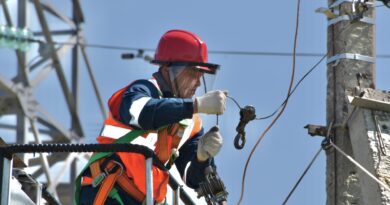PowerWatch Chronicles: Shocking Discoveries from Electrical Safety Audits in Sonipat
Introduction
In today’s world, where electricity powers almost every aspect of our lives, electrical safety has become paramount. One of the essential tools to ensure safety in electrical systems is conducting periodic electrical safety audits. These audits serve as crucial assessments of electrical hazards and help prevent accidents and potential catastrophes.
The city of Sonipat has been at the forefront of ensuring electrical safety through its Power Watch Chronicles. This article sheds light on the shocking discoveries made during the electrical safety audits in Sonipat.
Understanding Electrical Safety Audits
Electrical safety audits are comprehensive evaluations of electrical systems, infrastructure, and practices. The primary purpose is to identify potential hazards and risks that may lead to electrical accidents. These audits have a clear scope and specific objectives to ensure a thorough examination.
Common Electrical Hazards
Electrical shocks are among the most common and dangerous hazards. They occur due to various reasons, such as faulty wiring, equipment malfunctions, or improper handling of electrical devices. Additionally, electrical systems can pose fire hazards if not adequately maintained and monitored.
Power Watch Chronicles: Unveiling the Findings
The Power Watch Chronicles initiative in Sonipat was driven by a collective effort to enhance electrical safety. The audit process involved expert assessments of buildings, public spaces, and industries to identify potential electrical risks.
The discoveries made during the audit were nothing short of shocking. Numerous residential areas had substandard wiring, which significantly increased the risk of electrical fires and shocks. In several commercial establishments, outdated electrical equipment posed a significant threat to both employees and customers.
Addressing Electrical Risks
To address the alarming findings, Sonipat authorities swiftly implemented safety protocols. They conducted immediate repairs and replacements to rectify faulty electrical systems. Additionally, they stressed the importance of regular electrical inspections to prevent potential hazards from resurfacing.
The Role of Technology in Electrical Safety
Technology has played a crucial role in revolutionizing electrical safety measures. Advanced safety equipment, such as ground fault circuit interrupters (GFCIs) and arc fault circuit interrupters (AFCIs), has significantly reduced electrical accidents. Moreover, the Internet of Things (IoT) has enabled real-time monitoring of electrical systems, providing instant alerts in case of abnormalities.
Training and Awareness
While technology is crucial, the human factor cannot be ignored. Educating personnel and residents about electrical safety is vital to prevent accidents. Conducting training sessions and raising awareness about electrical hazards fosters a safety-conscious environment.
Compliance and Regulations
Adherence to electrical codes and regulations is non-negotiable when it comes to electrical safety. The Power Watch Chronicles’ discoveries in Sonipat have emphasized the importance of strict compliance with safety standards. Non-compliance can lead to severe legal consequences and endanger lives.
Mitigating Electrical Hazards in the Future
Building resilient electrical systems is essential for safeguarding against potential risks. Employing modern technology, conducting regular inspections, and encouraging responsible practices are the pillars of a secure electrical infrastructure.
Conclusion
The Power Watch Chronicles in Sonipat have brought to light critical issues that were previously overlooked. Electrical safety audits play a pivotal role in safeguarding lives and property from electrical hazards. By addressing the shocking discoveries, Sonipat has set an example for other cities to prioritize electrical safety and invest in preventive measures.
FAQs
- What is the significance of electrical safety audits? Electrical safety audits help identify potential hazards and prevent accidents in electrical systems.
- What are the common electrical hazards to watch out for? Electrical shocks and fire hazards are the most common risks associated with electrical systems.
- How did Sonipat respond to the audit findings? Sonipat promptly implemented safety protocols, repaired faulty systems, and emphasized regular inspections.
- What is the role of technology in electrical safety? Technology provides advanced safety equipment and real-time monitoring to prevent electrical accidents.
- Why is compliance with electrical regulations essential? Adherence to regulations ensures a safe environment and avoids legal consequences for non-compliance.




